Depression in men can feel heavy, isolating, and often invisible. Social pressures encourage men to “tough it out,” suppress emotions, or express only anger, leaving sadness, fear, and vulnerability unacknowledged. This emotional suppression contributes to chronic stress, neuroinflammation and overall systemic imbalance increasing vulnerability to depressive symptoms.
Nearly 1 in 10 men experience depression, yet less than half receive treatment. Depression reflects complex interactions between psychosocial and biological factors, genetics, trauma, lifestyle, and systemic stressors such as socioeconomic strain and discrimination.
Biologically, depression arises from neurotransmitter and hormonal imbalances, systemic and neuroinflammation, immune alterations, gut dysbiosis, nutrient deficiencies, poor sleep, circadian disruption, and compromised detoxification and oxidative stress. These factors influence mood, energy, motivation, and emotional regulation.
Honoring the body’s signals and emotions is a crucial step in addressing depression, helping men care for themselves and build resilience.
Body–Mind Mechanisms Underlying Depression
Neurotransmitter Imbalances
Low serotonin, dopamine, or GABA impairs mood, motivation, and emotional regulation. Production is influenced by genetics, chronic stress, inflammation, nutrient deficiencies, hormonal imbalances, and gut health. Gut dysbiosis or impaired nutrient absorption can also disrupt neurotransmitter synthesis, illustrating “bottom-up” communication from the body to the brain via the vagus nerve.
Neuroinflammation & Altered Immunity
Chronic stress, infections, toxins, and poor diet trigger inflammatory pathways and immune dysregulation, producing pro-inflammatory cytokines that cross the blood–brain barrier. These cytokines disrupt neuronal communication, impair neurotransmitter synthesis, and compromise mitochondrial energy, contributing to fatigue, brain fog, and emotional instability (Sălcudean et al., 2025).
Hormonal Dysregulation
Low testosterone, thyroid dysfunction, or altered cortisol—disrupt dopamine and serotonin balance, impair neuroplasticity, and reduce stress adaptation, further exacerbating neuroinflammation and immune dysfunction.
Gut–Brain Axis
The gut microbiome communicates bidirectionally with the brain via the vagus nerve. Dysbiosis reduces serotonin, dopamine, and GABA synthesis, increases inflammatory signaling, and impairs mood and stress resilience.
Metabolic & Mitochondrial Function
Depression is linked to cellular energy deficits. Mitochondria generate ATP required for neurotransmitter synthesis, detoxification, and stress resilience. Impaired mitochondrial function manifests as fatigue, poor concentration, and emotional instability.
Early-Life Adversity & Trauma
Adverse childhood experiences and trauma biologically embed stress, altering HPA axis regulation, immune signaling, and emotional responses.
Nutrition for Depression
Targeted nutrition supports neurotransmitter, hormonal and immune balance, improved energy, and overall physiological resilience.
- Omega-3 Fatty Acids (salmon, walnuts, chia, flax) – Reduce inflammation, enhance neurotransmitter signaling, and improve mitochondrial function.
- Protein & Amino Acids (eggs, turkey, legumes, tofu) – Building blocks for serotonin, dopamine, and GABA, in addition other integral regulatory processes in the body for mental health.
- B Vitamins & Methyl Donors (B12, folate, B6) – Support neurotransmitter production, homocysteine regulation, neuroimmune balance, and mitochondrial function.
- Vitamin D (sunlight, salmon, fortified mushrooms) – Supports serotonin, hormonal regulation, immune activity, and mood.
- Magnesium & Zinc (pumpkin seeds, leafy greens, oysters) – Support neurotransmission, reduce inflammation, promote gut health, modulate hormones, and enhance immune function.
- Polyphenols & Antioxidants (berries, dark chocolate, turmeric) – Protect neurons, reduce oxidative stress, and support mitochondria.
- Fermented & Fiber-Rich Foods (yogurt, kefir, kimchi, fruits, vegetables) – Promote gut microbiome health, stabilize mood, and improve neurotransmitter signaling.
- Trace Lithium (mineral-rich water/plants) – Supports neuroprotection, mood stability, neuroplasticity, and inflammation reduction.
- Hydration & Detoxification – Filtered water, nutrient dense soups and smoothies aid cellular detoxification, immune function, and energy, helping to support mood.
Lifestyle Approaches to Manage Depression
Healing depression requires reconnecting body and mind through consistent, restorative practices that regulate physiology, enhance resilience, and support emotional well-being.
Mind–Body Attunement
Tuning into the body’s signals–including the need for movement, rest, connection, nourishment or even energy from morning sunlight—can foster self-awareness and build trust within the body–supporting mood and resilience.
Sleep, Circadian Rhythm & Nature
Quality and consistent sleep supports regulation of the body’s functions— including gut microbiome, metabolic, immune, hormonal and mood. Disrupted sleep and circadian rhythm are correlated to increased depression risk, inflammation and oxidative stress. Morning sunlight helps to balance circadian rhythm which also helps in modulating the body’s processes relative to mood. Nature can also have positive effects on mood by reducing cortisol, inflammation and improving immunity.
Stress-Resolution & Movement
Chronic stress can become “stored” in the body, manifesting as autonomic dysregulation contributing to depressive symptoms. Somatic modalities (yoga, breathwork, gentle movement or stretching) can support the release of stress from the body. Complementing these practices, regular physical activity—such as aerobic exercise and resistance training, enhances dopamine and endorphin signaling, improves mitochondrial and metabolic function, reduces systemic inflammation, and strengthens resilience to stress and improves mood.
Connection, Expression & Purpose
Engaging in meaningful relationships, community, purposeful activities, and even connecting with pets can help to buffer stress and reduce inflammation. Leaning into vulnerability with those we feel safe with expressing our feelings can further support mood.
Evidence-Based Therapeutic Modalities for Depression
- Mindfulness & Self-Compassion, Meditation
- Acceptance & Commitment Therapy (ACT)
- Trauma-informed approaches like EMDR help rebalance the body–brain communication and resilience.
- Biofeedback for physiological regulation
These complement nutrition, sleep, movement, and lifestyle interventions, supporting holistic resilience and helping to mitigate depressive symptoms.
Depression is multifaceted in etiology, stemming from various factors— many of which are in our control. Understanding these connections can empower men to take care of themselves– body and mind, supporting their mental health and improved well being.
Ready to transform your career with functional psychiatry? Check out our upcoming trainings and book a private call now to learn what’s right for you!
References
- Anxiety and Depression Association of America. (2025, October 3). Men’s mental health. https://adaa.org/find-help/by-demographics/mens-mental-health
- Sălcudean, A., et al. (2025). Neuroinflammation—a crucial factor in the pathophysiology of depression. Frontiers in Neuroscience, 15, 502. https://doi.org/10.3389/fnins.2025.000502
- Codoñer-Franch, P., et al. (2023). Circadian disruption and mental health. Frontiers in Psychiatry, 14, 10146651. https://doi.org/10.3389/fpsyt.2023.10146651
- Shaikh, R. G., et al. (2025). Understanding the impact of the gut microbiome on mental health disorders. Frontiers in Psychiatry, 16, 11865252. https://doi.org/10.3389/fpsyt.2025.11865252
- Holt-Lunstad, J. (2024). Social connection as a critical factor for mental and physical health. World Psychiatry, 23(3), 313–314. https://doi.org/10.1002/wps.21224


